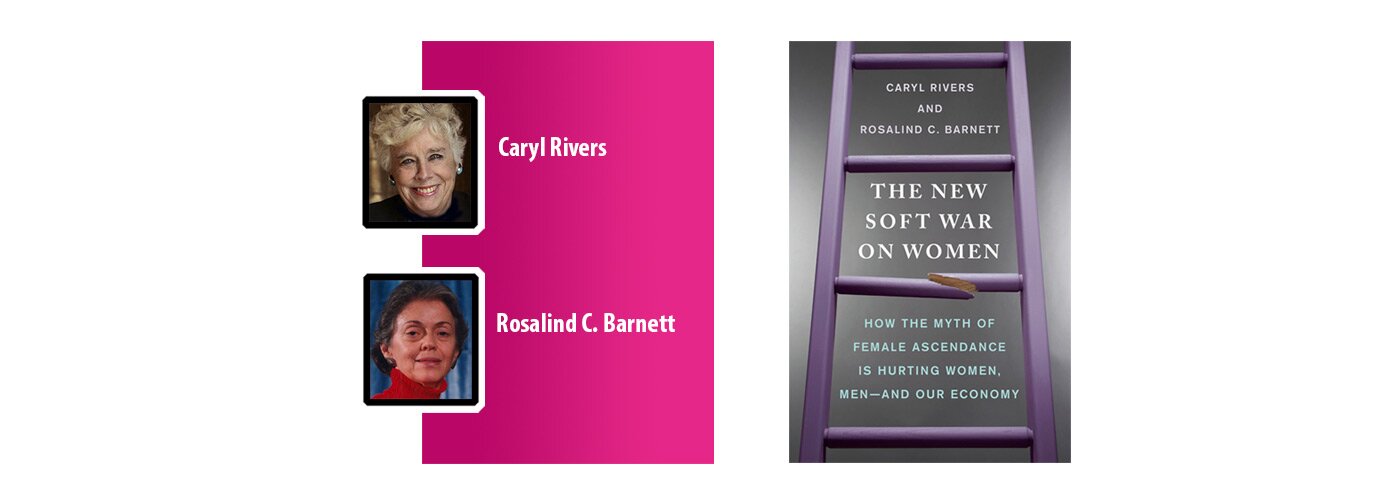Do women have it made as men fail?
Despite this argument, made in such best sellers as The End of Men and The Richer Sex, women are in fact falling behind in most sectors of the economy. The women-are-winning narrative undercuts our ability to fight the Soft War.
Flatlining in the boardroom.
More and more, women are missing in corporate boardrooms, executive suites, or among companies’ top earners, reports the think tank Catalyst. CEO Ilene H. Lang says the annual change in female leadership remains flat. “If this trend line represented a patient’s pulse—she’d be dead.”
Falling behind.
Over a lifetime of work, women with a bachelor’s degree will earn a third less (some $700,000) than a man with the same degree, says an Indiana University study. Female financial analysts take in 35 percent less than male financial analysts, and female chief executives earn 25 percent less than male executives. Female MBAs earn, on average, $4,600 less than male MBAs in their first job out of business school. Women start behind and never catch up. Female Harvard graduates earn 30 percent less than their male counterparts.
A lesser payoff.
The Sloan Foundation finds that women’s earnings have not kept up with their gains in educational attainment. The wage gap has hardly budged. Women still earn about 75 percent of what their male counterparts earn. Two years after graduating with the same degree as a woman, a man will be earning a whopping $9,500 more, even though she works the same number of hours, in the same type of job, reports the National Wage Project.
Men are promoted on potential, women on performance.
Why do so many young male hotshots move up the ladder ahead of their more seasoned female peers? Women are being judged on what they have actually done. For promising men, potential is enough to win the day, according to Catalyst.
Doing well may not work out so well.
We like to believe that the workplace is fair. If we do a good job, we will be rewarded. But this is less true for women than for men. Women whose performance is stellar get fewer rewards than men—even men who are less outstanding. Ten universities (California and Massachusetts Institutes of Technology, Princeton, Harvard, Stanford, Yale, Berkeley, Michigan and Pennsylvania) found that outstanding women professors did not get the same salaries and perks as their male peers. Also, Catalyst notes that women have much less access to well-paid “hot jobs.” 42 percent of high-potential men vs. 30 percent of high potential women worked on projects with a budget of $10 million or more.
No credit where credit is due.
Research by NYU’s Madeline Heilman finds that when a man and a woman work as a team, the man is assumed to be the leader, even if the woman has actually done most of the work and made most of the decisions. Female members are rated as being less competent, less influential, and less likely to have played a leadership role. This often means they are less likely to be promoted.
No second chances.
When they fail, women don’t get second chances, reports the Athena Factor project, sponsored by IBM, Microsoft, Dell, Cisco and others to better understand how to retain women in technology. Women in high positions in male dominated fields suffer harsher penalties than men when they slip up.
Competent but unlikable?
A major problem still plagues women: when they are clearly competent, they are also often judged to be unlikable–by both men and women, reports NYU psychologist Madeline Heilman. In fact, the more accomplished females become, the more they may suffer in the workplace.
Silence is golden–for women.
Both men and women judge females to be more competent when they are quiet, and less able the more they talk. If you speak up at some length at work, even if you are in a senior position, you will be seen not only as gabby but also as incompetent. With men, it’s just the opposite. A man who talks as much or more than you do will be seen as powerful and forceful, finds Yale researcher Victoria Brescoll.
